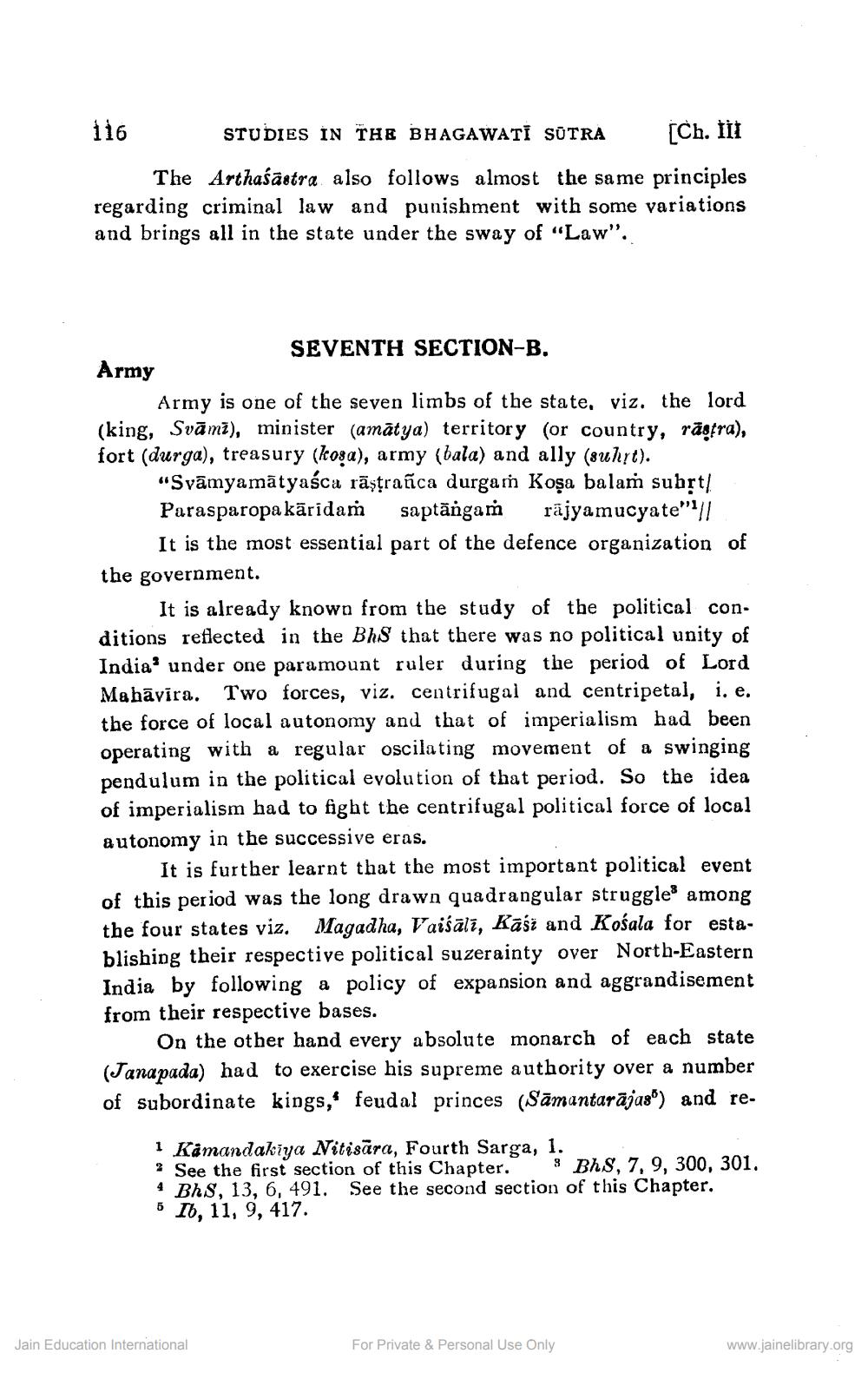________________
116
STUDIES IN THE BHAGAWATI SŪTRA [Ch. It The Arthaśāstra also follows almost the same principles regarding criminal law and punishment with some variations and brings all in the state under the sway of "Law".
SEVENTH SECTION-B. Army
Army is one of the seven limbs of the state, viz. the lord (king, Svāmi), minister (amatya) territory (or country, răstra), fort (durga), treasury (cosa), army (bala) and ally (suht).
"Svāmyamātyaóca rästrañca durgam Koşa balam subrt/ Parasparopa kāridam saptāngam rājyamucyate"'//
It is the most essential part of the defence organization of the government.
It is already known from the study of the political conditions reflected in the Bhs that there was no political unity of India' under one paramount ruler during the period of Lord Mabāvira. Two forces, viz. centrifugal and centripetal, i. e. the force of local autonomy and that of imperialism had been operating with a regular oscilating movement of a swinging pendulum in the political evolution of that period. So the idea of imperialism had to fight the centrifugal political force of local autonomy in the successive eras.
It is further learnt that the most important political event of this period was the long drawn quadrangular struggles among the four states viz. Magadha, Vaiśālī, Kāśi and Košala for establishing their respective political suzerainty over North-Eastern India by following a policy of expansion and aggrandisement from their respective bases.
On the other hand every absolute monarch of each state (Janapada) had to exercise his supreme authority over a number of subordinate kings,' feudal princes (Sāmuntarājas") and re
1 Kamandakiya Nitisāra, Fourth Sarga, 1. ? See the first section of this Chapter 8 BhS, 7, 9, 300, 301. 4 BhS, 13, 6, 491. See the second section of this Chapter. 5 Ib, 11, 9, 417.
Jain Education International
For Private & Personal Use Only
www.jainelibrary.org




